When travelling in Albania, we get a lot of questions. Many are curious about the country and wonder what it is like to travel here. Is it safe? Is it poor? Do people speak English? We have tried to collect a lot of questions - both those we have received and those we think you might have - and try to answer them here. What is travelling in Albania really like? Do you dare if you're not very adventurous ...?
Innehållsförteckning
How are the roads?
The roads are generally of fairly good quality. However, there are exceptions and in some places you may encounter large holes, dents, missing manhole covers, etc. Some roads run steeply along the mountains or narrowly through small villages. The most challenging part is often not the roads themselves, but the things that can appear on the roads: cows, goats, dogs and cars making crazy overtaking manoeuvres.
There are motorways on some stretches, and we have driven on some of them. The same applies here as on other roads. That is, the roads themselves are of good quality, but even though it is a motorway, you can encounter anything: tractors, donkeys, people crossing the road, fruit vendors, and so on. We have also seen a newly built motorway end abruptly and become a gravel road. Don't worry about driving here - but be careful!
Is it difficult to get petrol?
On the contrary, we think we have never seen so many petrol stations! Fuel is also relatively cheap. We paid about 11 kr/litre. In addition to petrol stations, you see car washes just everywhere. Lavazho (car wash) was actually the first word we learnt in Albanian!
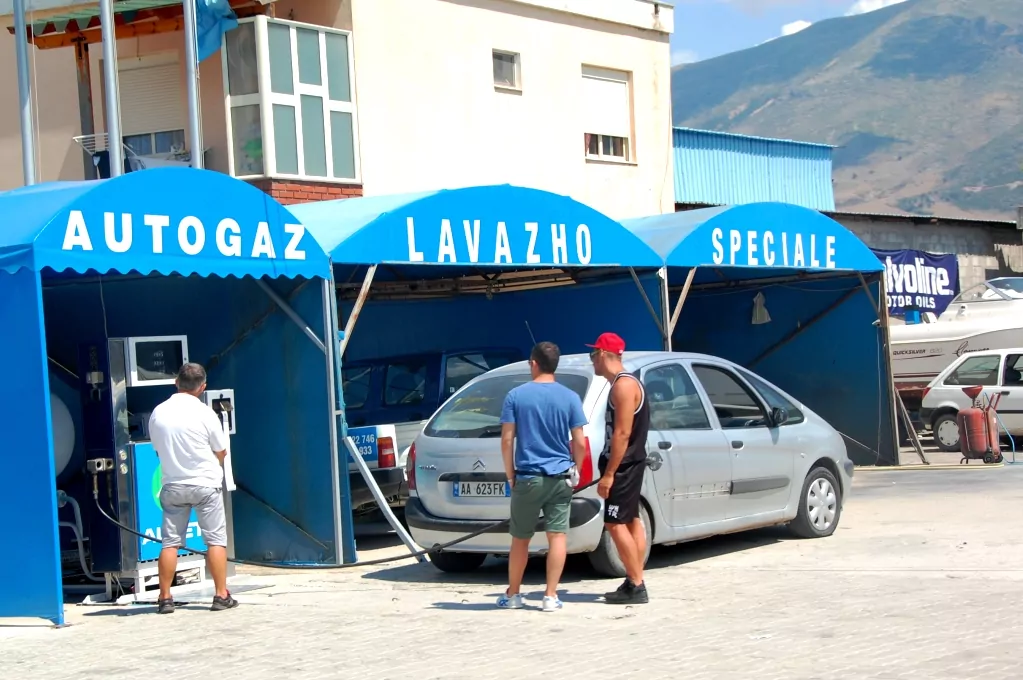
Are there campsites and pitches?
Yes, it does, but they are somewhat unevenly distributed across the country and of different standards. In the tourist areas there are quite a few campsites, while in other parts of the country they can be more sparse. A few campsites are of a high western standard. Many others are very simple and arise when, for example, a restaurant owner puts up the sign "Camping" outside his restaurant.
Almost all campsites have access to toilets and water. Electricity and free WiFi are also usually available. In some cases you have to empty the campervan toilet into a regular toilet and organised grey water drainage is rare. New campsites seem to be popping up all the time and the ones we visit are being renovated and fixed.
Can you fricamp?
Yes, you can. The Albanians are a friendly people and there are plenty of natural areas where you can stand without disturbing anyone. As always, some caution should be exercised, but we haven't found it any worse here than anywhere else. Perhaps quite the opposite ...
Is it criminal?
We perceive Albania as a very peaceful and safe country to travel in, but of course crime occurs in all countries. The Swedish Embassy in Tirana writes "Various types of property crime, robbery and burglary occur but Albania is generally not an unsafe country to live and travel in. However, one should be aware that the presence of small arms is high." That last one sounds almost dramatic, but we promise you won't see any weapons when travelling here...!
Are there any other risks?
Yes, traffic! People in Albania drive as they please and risky overtaking and unnecessarily high speeds are common. It's a bit like driving in Italy where everyone is impatient and wants to be first. Since animals and people move around on the roads, there are also many extra risks. According to the Swedish Embassy in Tirana, you should also bear in mind that health care and emergency care are of varying quality.
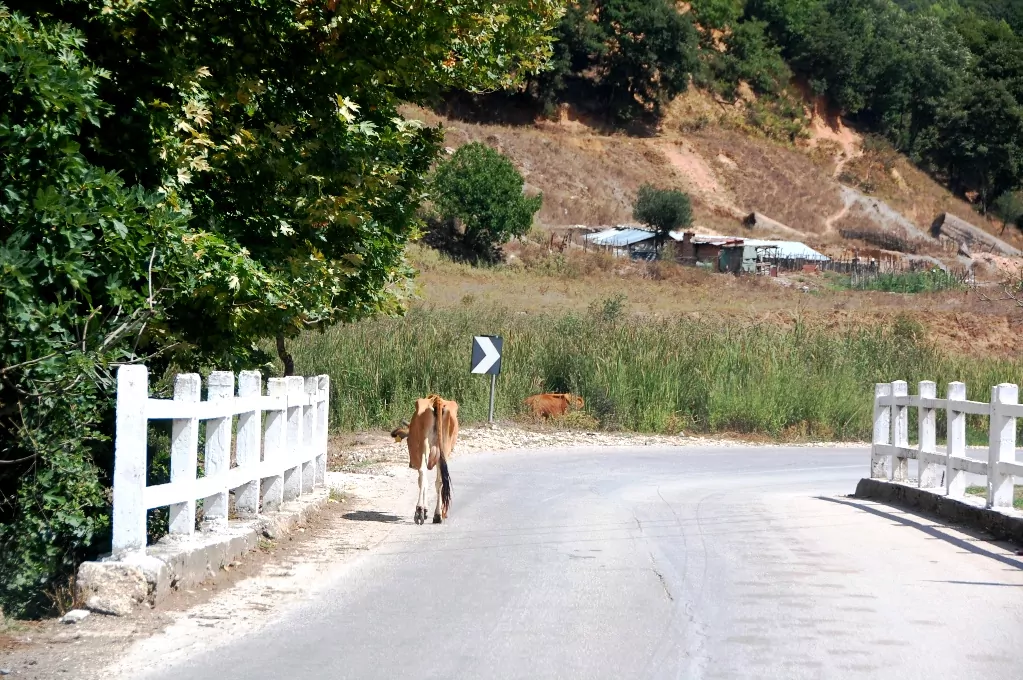
Are there any special considerations when travelling here?
Albania is not part of the EU. Make sure you have travel insurance and, if you're travelling by car, bring your green insurance card!
Is it poor?
Yes, Albania is poor. According to Wikipedia, half of the population are farmers and about 17 per cent of the population live on less than 16 kr/day. Unemployment is around 14 per cent and corruption is widespread. When travelling, you notice that the standard is much lower than in Sweden and you see many half-finished houses - people live on the bottom floor even if the upper floors are not finished. You also see a lot of demolished or abandoned houses.
We have not seen any beggars, but we have driven past a camp that looked very miserable. The people who lived there were dark-skinned and thus belong to some other ethnic group, we assume? In the tourist resorts you notice a settler spirit that feels positive - everyone is building and expanding.
What are the people like?
Everyone we meet is incredibly nice and accommodating. The people feel normal, simple, open and easy to talk to.
Do you need to consider that it is a Muslim country?
About 60 per cent of the population claims to be Muslim. The rest are mainly Christians or atheists. We have so far only travelled in the south-western part of Albania, but here we see nothing that reminds us that the country is Muslim. The people in the tourist centres wear bikinis and miniskirts and the men drink raki (alcohol).
Is it possible to speak English?
We have so far only travelled in the south-western part of Albania, which is perhaps the most touristy part. Here it is possible to speak English very well. Almost everyone knows more or less English and some speak it fluently.
In comparison, we do much better in English here than in Spain, France and Italy! Many Albanians also speak Italian. We have heard that it can be more difficult with English in the northern parts of the country, where there are not as many tourists. We have also heard that it always works out anyway!
How is the service?
Albanians are incredibly friendly and service-minded. As soon as we jump out of the campervan at a campsite or caravan park, someone comes up to us and shakes hands, introduces themselves by name and asks how they can help. When we bought a case of beer in a market, they carried it all the way to the car for us. In the restaurants they are attentive and helpful (although on one occasion we found that the staff were too busy and couldn't keep up).
Are there other tourists?
Albania has gently begun to blossom as a tourist destination, and some resorts in the south-west are really busy with tourists, such as in Ksamil and Saranda (where Apollo has a charter from Sweden). At the beaches north of Saranda, there are also tourists, but it is much thinner. The tourists come mainly from Italy and countries like Macedonia, Montenegro and Romania. Motorhome tourists are mainly from Italy, but there are also motorhomes from Germany and Poland.
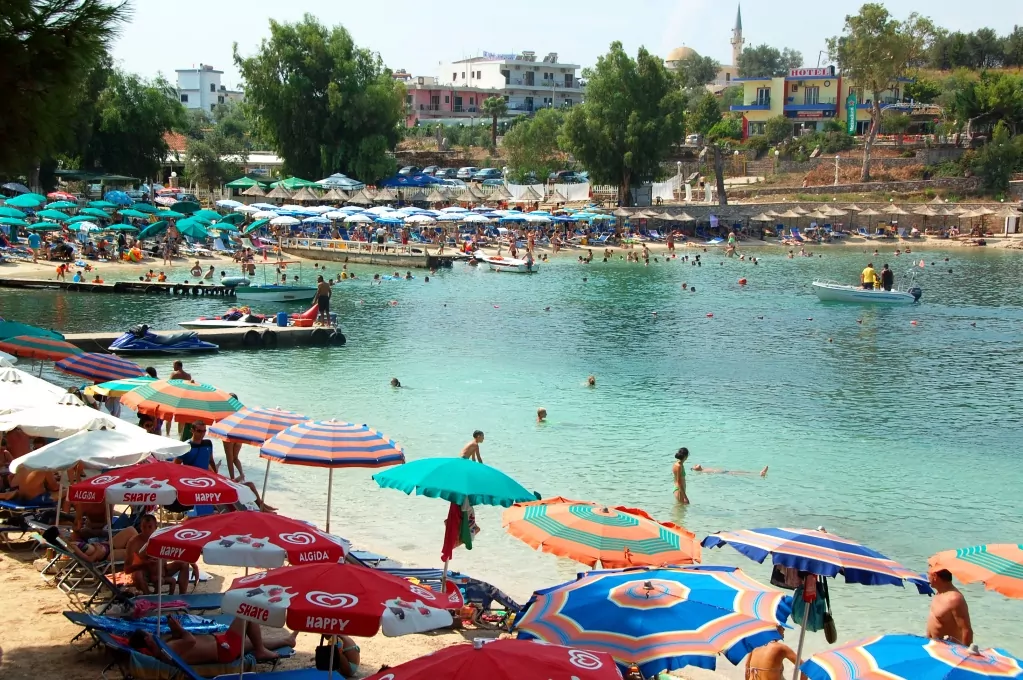
How is the food?
The food is a mixture of Turkish, Greek and Italian. In the tourist resorts you can mainly get grilled meat, fish, French fries, Greek salad, pasta and pizza. Large food shops are only found in the larger cities and so far we have only found small markets.
These include dry goods, tinned food, wine and other drinks, some dairy products, fruit and vegetables, some fresh bread, loose feta cheese, eggs, sausages and some frozen meat. Fresh fish and meat can be bought in the butcher's shop/fish shop.
How cheap is it really?
It is very cheap. Camping or staying in a caravan park with electricity and WiFi costs €100-150/day in high season. A large strong drink (50 cl) costs €7-14. A pizza or pasta costs €30-50.
Which currency is used?
Albania has its own currency called leaky. In most places you can also pay in euros. However, our experience is that it is easier to have lek because you don't have to recalculate. Prices are usually quoted in lek, and we have been warned that they can sometimes be quoted with an extra zero. This is not a way to fool tourists, but means that the price is given in the old currency. We have not found this to be a problem, but if it seems unclear, ask if the price is "old lek or new lek?".
Is there WiFi?
WiFi is available in most campsites and often also in cafés, restaurants and bars. Sometimes it is completely free (no code) and sometimes you have to ask for the code. So far, we haven't had a single instance where WiFi costs money. How does it work? Sometimes it works really well and sometimes not so well.
Why should you travel in Albania?
Because nature is staggeringly beautiful and dramatic, because the beaches are beautiful but not too crowded, because the sea is turquoise blue, because you get so much for your money, because the people are so friendly... simply because travelling in Albania makes you happy!
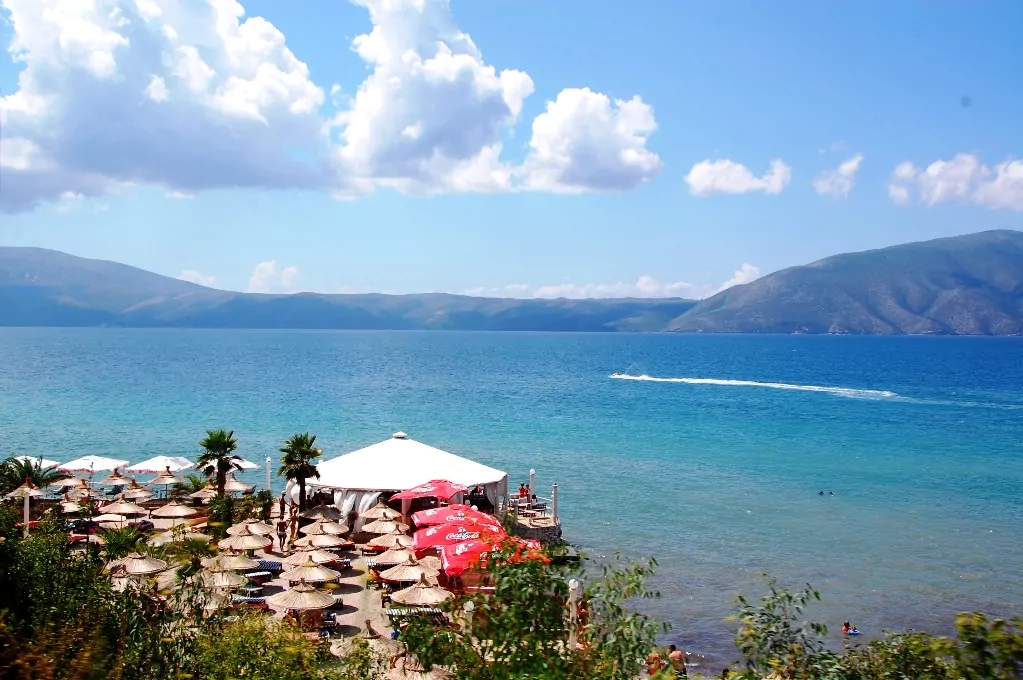
Facts about Albania - 30 things you (might) not have known
Facts about Albania - 30 things you might not know about Albania. We travelled around...
Camping on Lake Ohrid in Albania
Camping at Lake Ohrid in Albania. Lake Ohrid is located in eastern Albania on the border with North Macedonia, and is...
Blue Eye - "Syri i Kalter" source in Albania
The source "Syri i Kalter", Blue eye, or blue eye in Swedish is located in southern Albania, not...
Beautiful northern Albania - Shkoder and Lake Shkoder
Now we are just about ready to leave northern Albania with Shkoder and Lake Shkoder and head north,...
Motorhome parking in Albania - Radhima on the west coast
Now we have found a modern caravan site in Albania at Radhima. We have written a...
Restaurant Guvat, Ksamil in Albania
We had received the same restaurant tip from two completely independent people. So we were "forced" to try...
Ksamil in Albania - lovely sunshine holidays
Why not take a sun holiday in Ksamil, Albania? Ksamil is a tourist resort near Saranda with nice beaches....
Albanian meze - Many small dishes
Albanian meze - what is it? We are currently staying at a campsite in Shkodra at...
Driving in Albania - on Balkan roads
What is it like to drive in Albania? It doesn't have to be difficult to drive a car in...
From North Macedonia to Albania by motorhome
Now we have continued our journey from North Macedonia to Albania. After the visit in Kicevo we went...
Food in Albania - 22 Albanian specialities
Food in Albania, what does it taste like? And what does Albanian food mean? We have travelled by motorhome...
Lake Shkodra Resort - camping at Lake Shkodra
Lake Shkodra Resort - camping at Lake Shkodra. If you're worried about it being...
Saranda in Albania - 5 great excursions around Saranda
Curious about Saranda in Albania? Today we offer some tips on the lovely holiday resort of Saranda...
Major cities and motorways in Albania
Today we have experienced both big cities and motorways in Albania. We have travelled from...
Butrint - an archaeological site in Albania
Butrint is an archaeological site in southern Albania. The city was inhabited for about 3000 years, and...
Livadhi beach, Himara in Albania - camping Moskato
Today we can tell you about the Livadhi beach at Himara in Albania and the Moskato campsite, which...
By motorhome on Albania's mountain roads
Today we continued northwards on Albania's mountain roads, from Himara to Radhima. The plan was just to move...
Albania's beaches - 14 beautiful beaches in Albania
Albania's beaches! Today we present five beautiful beaches in Albania, including our own favourite Bunec Beach....
Guest blog: From Dubrovnik to Thessaloniki
Saturday and guest blog with Elisabeth Haug From Dubrovnik to Safari Beach, 16 miles. That should...
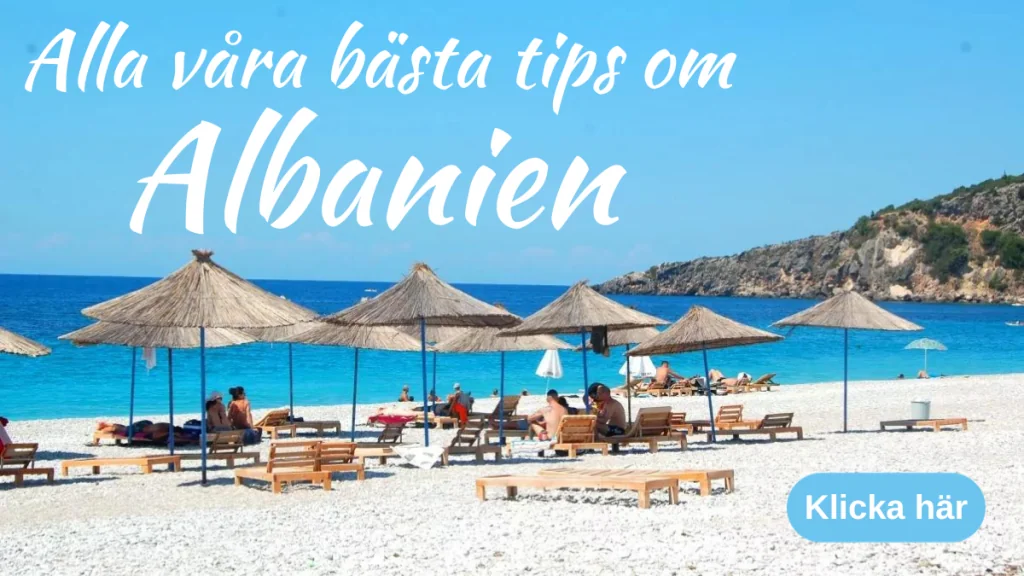

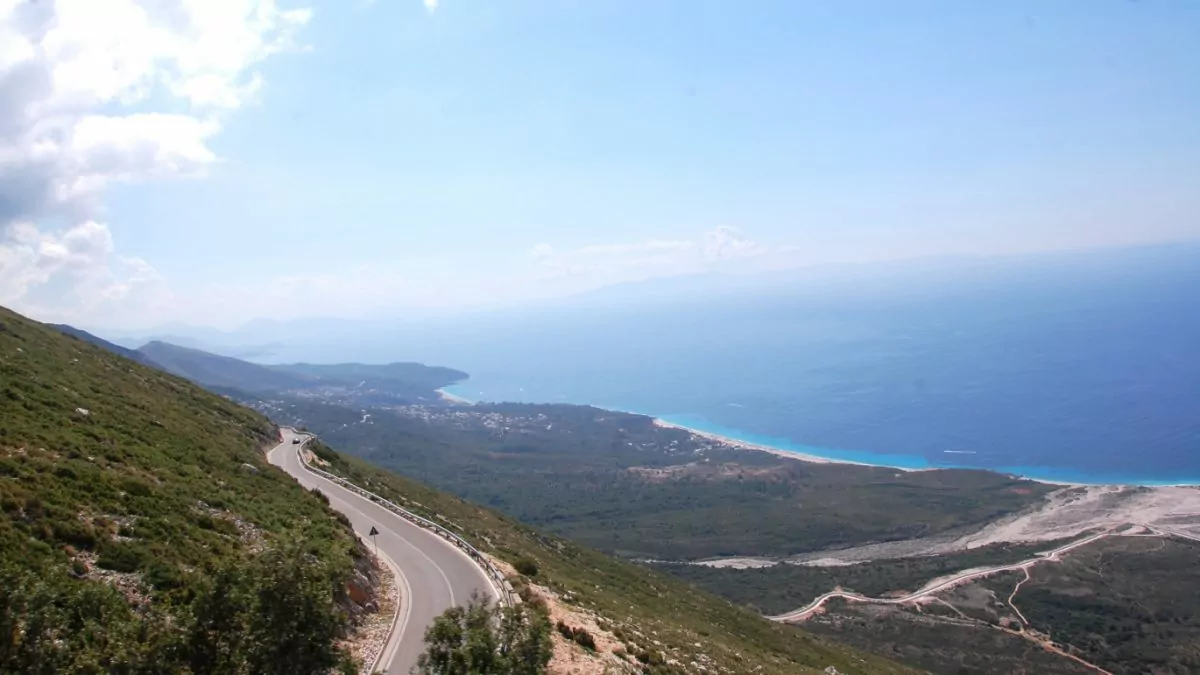
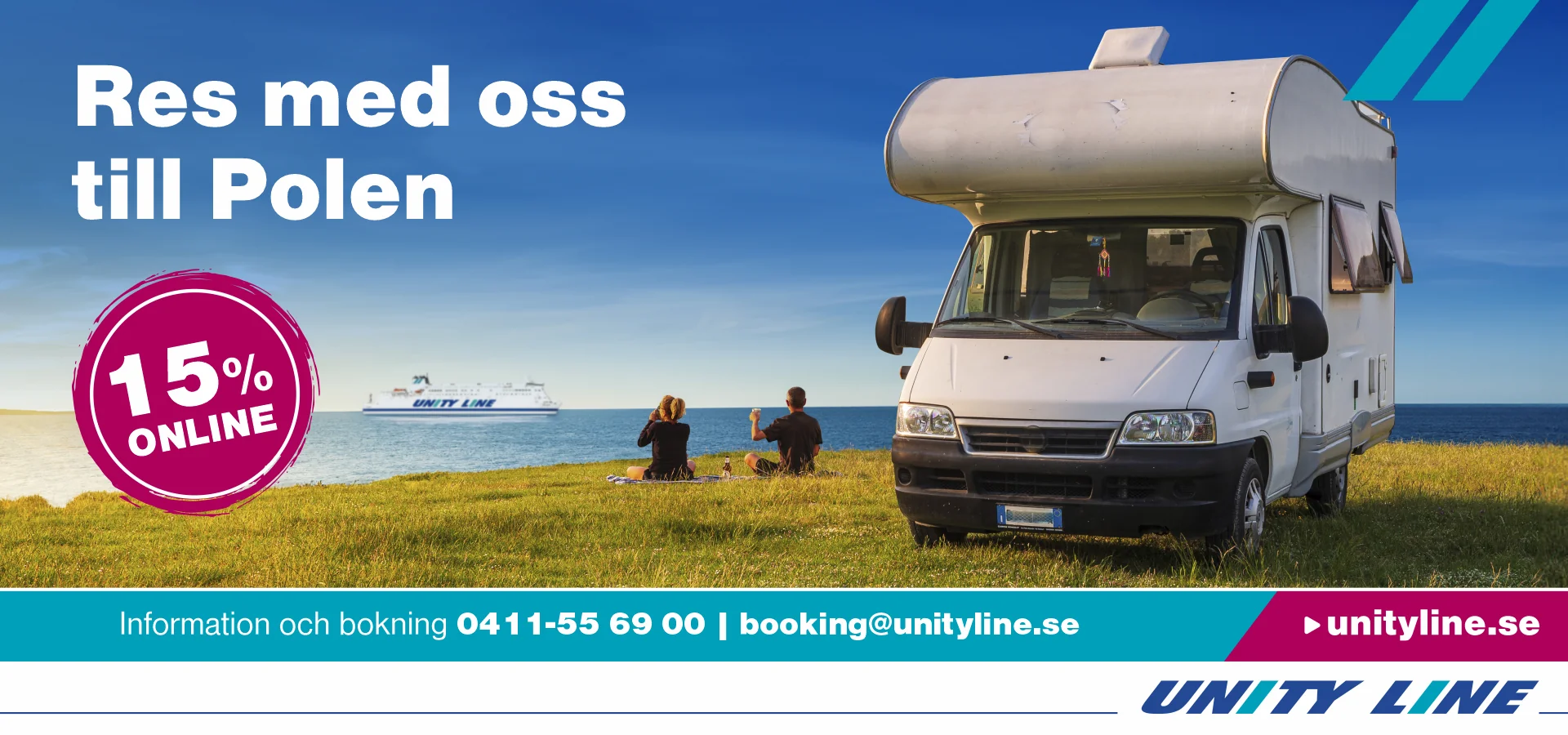






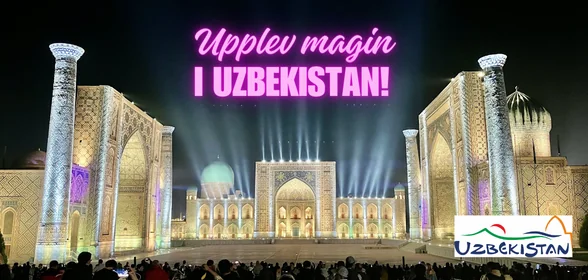

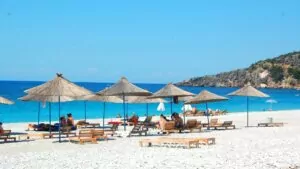
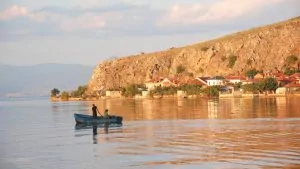
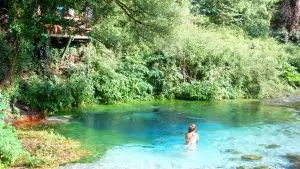
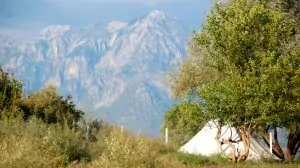
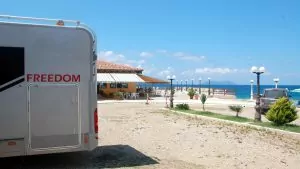
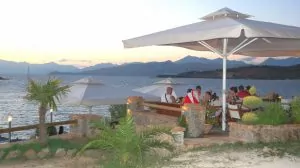
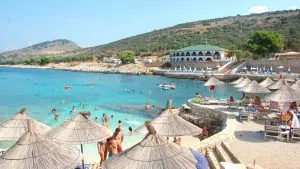
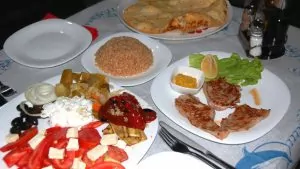
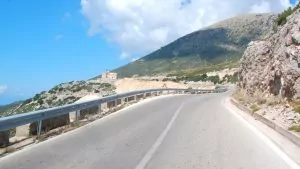
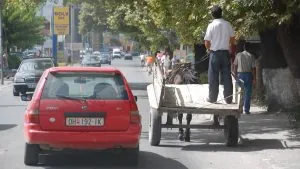
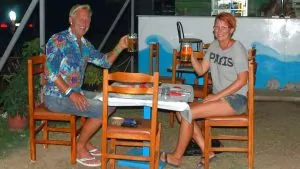
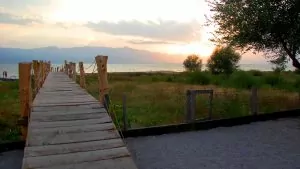
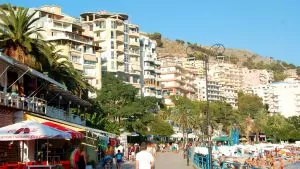
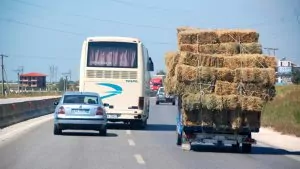
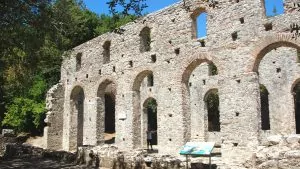
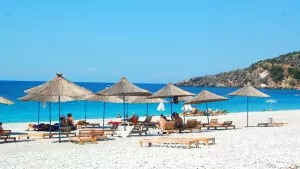
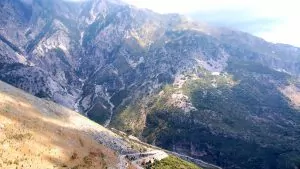
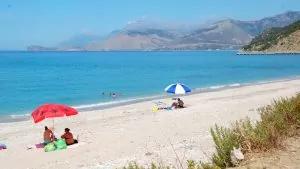
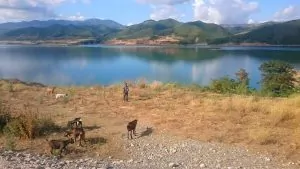
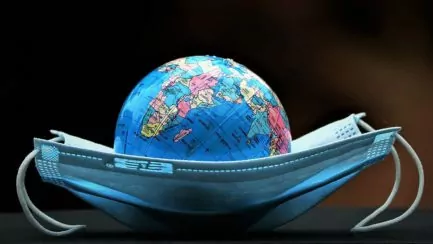
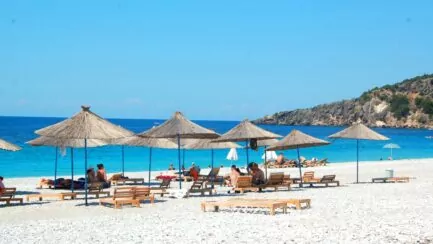
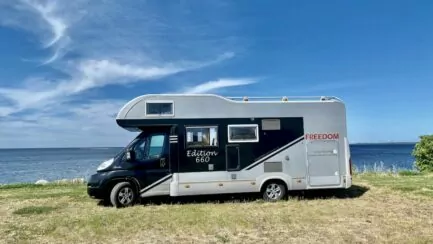
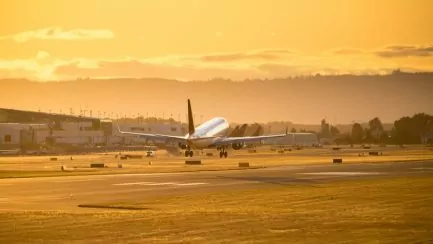



Maggan och Ingemar says:
Just as you describe everything, we have also experienced Albania. Next year there will probably be a return visit there.
Have a good trip....we're a bit jealous of you....
24 August 2015 - 9:07
Marina says:
Thanks for very interesting and valuable info!
24 August 2015 - 9:12
Ama de casa says:
Albania sounds undeniably exciting! And it looks amazingly beautiful as well 🙂
24 August 2015 - 9:24
Steve says:
What super info for those thinking of visiting Albania. Yes, even for me who can no longer travel. I get to learn a lot about a country that I previously knew very little about.
24 August 2015 - 9:25
admin says:
Maggan and Ingemar, glad to hear that you had the same experience and that you want to go back! 🙂
Marina, we have received a lot of questions, so we hope this can be useful information!
Ama de casa, the nature is really beautiful! It is not built up everywhere so there is so much nature, somehow.
Steve, you always learn by reading blogs, as you know 😉.
24 August 2015 - 10:08
Ontrip.dk says:
Super interesting and really good info you give here. It is definitely applicable and usable for a single trip to Albania 🙂 .
24 August 2015 - 10:35
BP says:
Albania should hire you as an ambassador! Hope many people read this post and go down to Albania. So many prejudices you have had before you went there. All of them have been put to shame, I can say - by a wide margin, too.
PS. The prejudices against Sicily/Italy, however, were only confirmed. Oh sometimes I like to have my prejudices confirmed;-) DS.
24 August 2015 - 13:04
Matts Torebring says:
Thank you, that was really detailed information, which is good to know. Take care
24 August 2015 - 18:34
admin says:
Ontripdk, hope it can be useful info for others who are thinking of visiting Albania!
BP, haha, yes. I offer this particular marketing to Albania 😉 And yes, sometimes it feels good to have your prejudices confirmed as well 😉.
Matts, thank you, great if it can be of use to anyone!
24 August 2015 - 19:27
Gunilla Yourstone/4000mil.se says:
I have long had my eyes on northern Albania, the Albanian Alps, Komani lake, Thet etc.
Do you have any plans to move in that direction?
24 August 2015 - 19:49
Albertina says:
You should go and check out ksamil or (syri in cold) or also as it is called in Swedish blue eye. It is a spring with bright blue water that you do not see in many places in the world. PS. it is really ice-cold water which can be very nice when it is so hot, but the place is more for running in and dipping three times from head to toe. I come from Albania and have been there since I was born and seen so many beautiful places. I can say proudly as an Albanian that you really should go there if you want to discover something beautiful!
21 April 2017 - 19:00
Ditte says:
Thanks for great and useful info!
24 August 2015 - 20:40
Veiken says:
Europe's last outpost is open to the world. It was different in the early 90s. Now we're waiting for North Korea to open up, but it will probably take some time! Nice to read about your journey in Albania!
24 August 2015 - 21:15
annar says:
Have followed you day by day since you left for your year off. I have read with pleasure and curiosity. As I am too old to go out now, but I have travelled by bus all over Europe, even to Albania, I did not want to comment, but now I could not resist. You recreate the desire to travel and make one feel that one is travelling with you. Maybe that's what I've done since I haven't missed one of your travelling days. Fantastic blog. You are both to be congratulated.
24 August 2015 - 23:04
admin says:
Gunilla Yourstone, oh that sounds exciting! We have travelled east in Albania now, and from here we go into Macedonia. We probably won't go into Albania again, but we might go close, on the Montenegro side.
Ditte, we hope it can be useful for someone!
Veiken, yes, this country has really been locked up. One can hope that North Korea will also open up at some point!
Annar, thank you so much for your comment that really warms! Things like this make us soooo happy, you have no idea! Nothing is more fun to hear that we arouse the desire to travel for someone! 🙂
24 August 2015 - 23:17
Anna, New York – My Bite of the Big Apple says:
What a great list of questions and answers! I think many people have wondered what it's really like in Albania. Now at least I got the urge to go there! Thank you very much.
25 August 2015 - 11:10
Lennart says:
Thanks for all the tips and advice!
25 August 2015 - 16:19
Elisabeth says:
I just suggested to my youngest daughter, who together with her boyfriend is reluctantly sitting in Skopje in Macedonia on their train journey, to go to Albania instead. They have just witnessed with their own eyes the flow of refugees from the train window and don't really know which way to go from Macedonia. Tomorrow I will call them again and tell them what I have read here! Feels calmer for the mum soul with Albania instead of Macedonia right now, so thank you for the Albania tip! Water on my mill! Have a continued nice trip.
25 August 2015 - 23:58
admin says:
Anna, New York, we are happy to help you with this list! We would like to inspire people to travel to this beautiful country. At the same time, it is of course good to know that it can be more disorganised, e.g. in the traffic, etc.
Elisabeth, thank you for your comment! Now we are also in Macedonia... but we haven't seen any of the refugee flow yet. I don't think you need to be worried in Macedonia, but of course it is not fun to have to see the refugee stream. Albania is super nice and feels safe to travel in. But the question is which way the trains go, I don't know. It is the Macedonia/Greece border where the refugees enter the country. So you have to take another route, by train or bus. Then I have read that the trains in Albania are a bit crappy (they bought Italy's old ones, which were crappy even then).
26 August 2015 - 7:20
Inga M says:
I was just wondering about Albania in a comment and am grateful to have received such a detailed answer about a country that is somewhat anonymous here with us. Very interesting reading and I have had to revise some prejudices about poverty, crime and Muslim extremism.
Have a good trip!
29 August 2015 - 5:55
Albin Cerimi says:
I come from Albania!
I recommend going to three places called Saranda, Ksamil and an old Illyrian/Albanian town called Apollonia where there is a mixture of Albania, Greece and Italy.
When we were in Albania, you could buy shoes and clothes for less than 50 euros.
Albania is a nice, warm and cheap country to live in a hotel.
We are going to build a house in Albania so we can live there when we go there so you have to take advantage of it before it becomes popular so you can buy land and maybe have your own hotel or something else.
22 February 2016 - 19:56
admin says:
Albin Cerimi, thank you very much for your comment! We enjoyed Albania very much when we travelled there and we have recommended Albania to everyone who reads our blog, and we have spoken to many people who are planning to go there.
22 February 2016 - 20:22
Carina says:
Exciting reading. We are driving through Albania to Greece and have read some worrying things before but this reading was reassuring.
Wondering how to get their currency and how the border crossings are. Does it take time and is there any cost etc. etc. etc. etc.?
Grateful for answers. Carina ☀️
03 July 2016 - 23:13
admin says:
Carina, I don't think you should worry at all! You can be a bit careful on the roads though, as all sorts of vehicles can appear and some people drive carelessly. We had no problem with the border crossings, it didn't take long. They want to see your passport and green card. If you have it, it doesn't cost any money. Lek can be withdrawn from ATMs in the cities.
04 July 2016 - 6:14
Agnetha says:
We've just discovered the beauty of Albania and found some great tips here!
Curious about what you can buy from there?
I know prices are low, but can I buy clothes and electronics too?
18 July 2016 - 9:29
admin says:
Agnetha, how nice that you have discovered Albania! We did some clothes shopping when we were there and it was cheap. We weren't looking for technology, so I can't answer that. It could be cheaper, but the question is whether the supply is so great...? But like I said, I can't really answer....
19 July 2016 - 22:16
Bo Gillsten says:
What do you think about travelling by caravan? Are there narrow roads (the caravan is 250 cm wide)? I plan to pass on the road to Greece from Montenegro to Macedonia. Do you have any tips?
11 June 2017 - 20:35
Helena says:
No problem travelling with the caravan I think! The roads are pretty good and there are big buses everywhere. The occasional curve in the mountains can be a bit tight perhaps (but rarely) and when it was a bit crowded in some village - it was rather because of the height (our caravan is 3.10 high!). Compared to Italy or other southern European countries it is not crowded at all. I would not be worried! Drive through Albania!
11 June 2017 - 20:44
Astrit says:
Hello on is; actually in Albania the problem is not the ordinary people, they are our damn politicians who do not fix places for people to work, otherwise people in Albania should not try to emigrate to other countries, but I just want to say that people in Albania are very nice to tourists and Albania has if we start with from butrint to valbona which is in the north of Al.but there are no roads. I do not know if I have written correctly but I have some difficulty with writing in Swedish. Regards Astrit
10 September 2017 - 1:29
Helena says:
Hi! Thank you for your comment! All the people we met in Albania have been nice and hospitable!
22 April 2018 - 20:09
Birger Johansson says:
albania looks interesting, on a motorbike trip down to greklan and corfu in the summer of 1984 we were not allowed to drive through albania we had to round it, it was a closed country then, but it would be interesting to see their transformation that has been in these 30 years that have been good, very interesting reading and tips, you get curious about a trip there thanks for a good site
Birger umeå
01 March 2018 - 22:40
Helena says:
Thank you for your comment Birger! A lot has happened in Albania during these years, and it's still happening at a rapid pace, it seems. Interesting to follow!
22 April 2018 - 20:10
Carola Rosenstam says:
My daughter and I are going to the Fuerra Riviera in Albania this summer.
Does anyone have any suggestions on what we
"must" do?
Or should not do ?
22 April 2018 - 19:01
Helena says:
Hi Carola! Great that you are going to Albania! I have tried googling Fuerra riviera, but can't find it. Where is it located? Albania is very much about sun and swimming, water activities and beautiful nature. There may also be some historical sights, depending on where you are.
22 April 2018 - 20:13
Carola Rosenstam says:
Hi Helena
It is located in the vicinity of Ianina and only Apollo travels there.
14 May 2018 - 1:12
Carola Rosenstam says:
Tirana ! It should not say Ianina !!!
14 May 2018 - 1:15
Per-Arne Hedlund says:
Hi! My sister and I are travelling to Albania / Himara and have searched for fishing trips. Find nothing. Do you know something if there is. Do not just need to be on Himara.
Thank you in advance.
19 June 2018 - 16:59
Naile says:
I was first in 1998, it was beautiful nature and beaches, friendly people but poor. I liked the natural plazas, cordial people. I was again in 2015 I could not understand what development made and just enjoyed the nature, sea, sun and food.
I wish you a nice holiday ????
21 March 2019 - 23:21